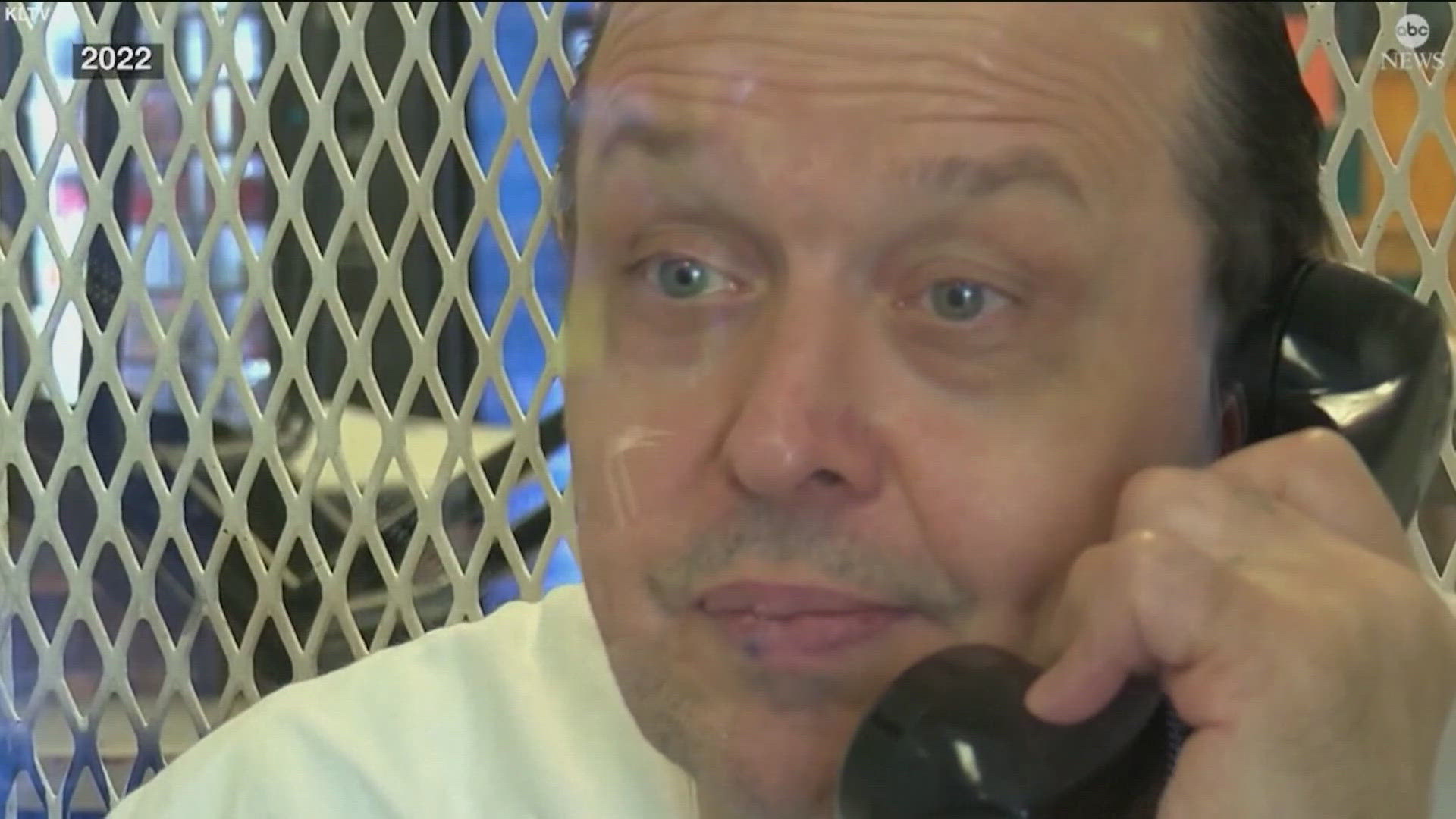AUSTIN, Texas — Next week's election will reshape the top criminal court in Texas. It could determine what happens to Robert Roberson, the man convicted of killing his daughter in 2002, who is at the center of a legal battle to avoid execution.
Texas is one of only a handful of states that elects its judges in partisan elections, meaning several members of the Criminal Court of Appeals are on the ballot next week.
In 2003, Roberson was convicted and sentenced to death for the murder of his 2-year-old daughter, Nikki.
Roberson was scheduled to be executed on Oct. 17, but a last-minute back-and-forth battle of subpoenas and hearings halted the process and kept Roberson alive. A bipartisan coalition of state lawmakers issued a subpoena requesting he testify before a Texas House committee.
During Roberson's trial, the medical examiner and a pediatrician claimed Nikki's death was due to the "shaken baby hypothesis." State lawmakers believe the state's shaken baby syndrome diagnosis should lead to a review of the case due to the "Junk Science Law" in Texas, which allows prisoners to challenge possible wrong convictions.
The committee is concerned courts have ignored the 2013 law, which was created because of cases involving flawed scientific evidence, like cases that involved infant trauma. Texas became the first state to pass such a law.
Earlier this month, in a 5-4 decision, the court of criminal appeals ruled against the effort to subpoena Roberson, clearing the way for the execution before the state's highest court, the Texas Supreme Court, stepped in to halt it. Now, Roberson's execution date can't be re-set until mid-January at the earliest, but by that time, the court will have three new judges.
"I would expect that somewhere close to nine out of 10 Texas voters have no idea that the three Republicans on the ballot are not incumbents," Rice University Political Science Professor Mark Jones said.
Three Republican incumbent members of the court, Sharon Keller, Barbara Parker Hervey, and Michelle Slaughter, lost their primaries in March. All three voted to allow Roberson's execution to move forward.
Only two judges who voted to allow Roberson's execution to move forward will be back on the bench in 2025. If returning judges do not change their votes, Roberson would need just one of three newly-elected judges to formally halt his execution.
Joshua Blank with the Texas Politics Project says judicial elections are typically low-profile.
"Most people look at judicial races and know very little if anything about the candidates, and really the main driver in those votes is the candidates' party," Blank said.
In many cases, Jones said most voters do not even think about the races for the Court of Criminal Appeals before they enter the polling place.
"As a result, when they get to that place on the ballot, they vote almost exclusively based on partisanship with people who lean Republican voting for Republican candidates and people who lean Democratic voting for Democratic candidates," Jones said.
Democrat Holly Taylor is challenging Republican David Schenck to become the court's presiding judge. In Place 7, Democrat Nancy Mulder is running against Republican Gina Parker, and in Place 8, Democrat Chika Anyiam is facing off against Republican Lee Finley.
Given that Texas is a state where there is a natural Republican lean and advantage, Jones said it would be a "complete shock" to see any of the Texas Court of Criminal Appeal Republican candidates lose.
"The Texas Court of Criminal Appeals is a statewide election where voters have little to no information about the Democratic and Republican candidates in a state that leans Republican, meaning that unless something bizarre happens, people get into the polling place, they don't know who the candidates are, they vote based primarily on their partisanship, which means that all three Republican Court of Criminal appeals judicial candidates will win and the three Democrats will lose," Jones said.
For Roberson, the stakes are high since the court's future is in flux. If the balance of the court shifts, his lawyers could get new legal avenues, but the all-Republican court could also get more conservative. If they vote the way their predecessors did, it could slam the door at any chance of reprieve.
"This does shine a little more of a light on the race than would otherwise have been the case, but not to any extent, there is actually going to change the outcome," Jones said.
While it is under a brighter spotlight, it is competing for the voters' attention with the presidential race, the U.S. Senate race, a host of U.S. House races, and several others up and down the ballot, making it challenging to break through.
"For the small number of people who follow these issues closely, there is a direct relationship between the election for the court of criminal appeals, judges and decisions such as the Roberson case," Jones said. "For most voters, even if they become aware that the Texas Court of Criminal Appeals is involved in this, they're not necessarily going to make that linkage to the three races they're going to be voting on in November."
Blank said it could draw some more interest marginally from voters and potentially lead to voters thinking a little more about their vote rather than voting purely based on partisanship.
"Those people who have strong views about the death penalty, whether in favor or against it and the fairness of its application may have something else to think about when they cast their balls in those elections, but the reality is that most Democratic voters are going to vote for the Democratic candidate for those seats and most Republican voters are going to vote for the Republican candidates for those seats regardless of their positions on the issues because they know so little about those races," Blank said.
Whether this all influences who voters select to be on the court and what this ultimately means for Roberson's fate remains to be seen.

